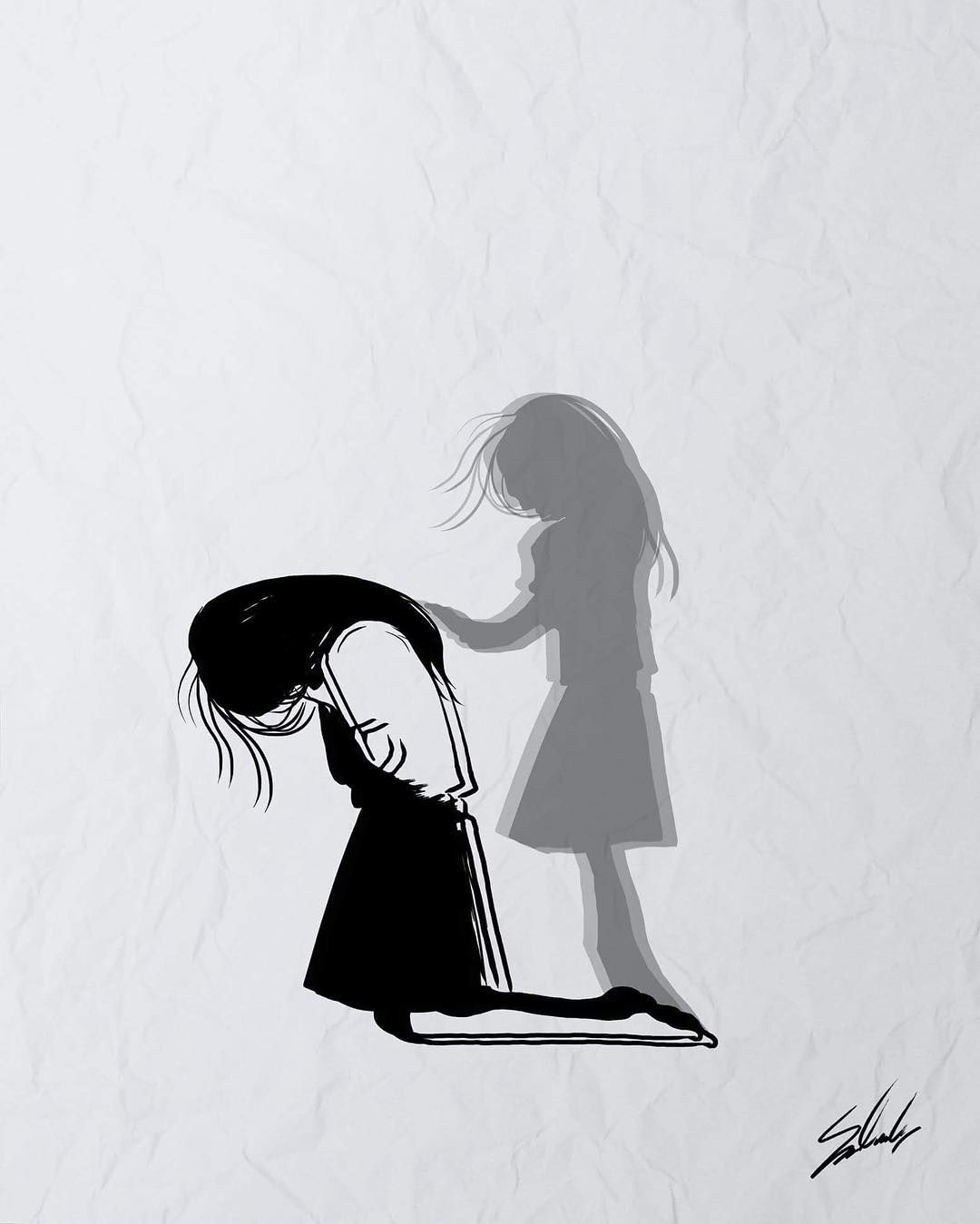In 2016, the number of people estimated to be suffering from mental health issues like depression and anxiety amounted to roughly 1.1 billion. Since then, numbers have likely continued to rise. Moreover, studies have also shown women especially on average are a) more likely to suffer from mental health issues, and b) less likely to talk about them. The taboo in Pakistan surrounding depression and anxiety disorders only serve to aggravate the individuals suffering even more. For the women who cannot seek out full time therapy, we’ve enlisted the help of a trained therapist. You sent us in your questions – here are the answers!

I’m eighteen and my mother, instead of hearing me out when someone accuses me of something, just shouts at me and tells me I’m the worst daughter ever, that I’m disobedient when I try to explain, and doesn’t talk to me for days after that. I can’t deal with being misunderstood anymore as I have been my entire life, and whenever I try to tell her that she shouldn’t say whatever she says to me, she starts lecturing me about the rights of parents in Islam and uses religion to win what she considers a “fight”. Could you please help me find a way to get through to her, I’ve tried sitting her down, begging her, shouting at her, nothing seems to be working and I can’t deal with it much longer or I’ll go crazy.

Shahrukh’s Response:
Dear Anon,
I know how frustrating and upsetting it can be when parents are critical, and are unable to fulfil their role of being nurturing and compassionate; and having to consistently defend and explain yourself, only to be met with further hostility. It’s unfair, and I am with you there. We can talk about the different routes we can take in this situation, and also discuss the what might be going on in your dynamic with your mother.
Inter-generational And Cultural Trauma In Relation To Parenting
As far as Pakistani culture is concerned, there’s a great deal relational toxicity around us, especially when it comes to family dynamics. This includes but is not limited to: lack of boundaries, guilt tripping/emotional manipulation, excessive amounts of criticism and lack of effective and healthy communication. There is a great deal of unprocessed trauma and lack of awareness, especially in the previous generation, that was not exposed to the dialogue of mental health that exists now, and when the time comes for them to be parents, there is a great deal of projection that comes into their parenting style. What this means is that they are carrying their own baggage from their relationship with their parents, and bringing it into how they parent their children.
When it comes to criticism, Anon, it has less to do with what you’ve done, and becomes more about their inability communicate things in an effective and healthy manner. The truth is, at the end of the day, you’re only human and mistakes can happen, and it needs to be met with compassion and understanding, rather than intense, unforgiving criticism. Unfortunately, our culture also has a habit of forcing the standard of unattainable perfectionism, where mistakes are not allowed and you’re just expected to know things without being given any proper explanation.
Bottom line is that it’s not your fault, and I know it’s difficult to accept that there are people in our lives who are stuck in their ways and patterns; and while we can do our best to try and change them, more often than not, it’s a steep, uphill battle – because the decision to change their ways involves a great deal of self-reflection, accountability and a willingness to change. It’s entirely possible that they may opt to do so, and there’s no harm in trying to help initiate that, but it’s important to stay mindful of the fact that there is only so much you can do.

If you’ve tried speaking to your mother face-to-face to no avail, you could try writing her a letter. One that speaks about how you feel hurt by the words she may use, and even outlining what it is you need from the relationship. The advantage of letters is that it gives you the opportunity of being heard and not being interrupted, and also giving the other party enough time to process things.
Additionally, you could try speaking to her again – maybe at a time where she’s in a space to listen. When it comes to conversations like this, timing, tone and words used are crucial. It’s important to speak primarily about your feelings, and about what you need from her, rather than criticizing.
Whatever happens, Anon, once you’ve done your part, in order to protect your emotional well- being, you will need to distance yourself from the expectation that she will change. If she does, great, if she doesn’t, know that it’s not your fault. This is about her, not you. This is when we get to the next part of this article: learning to parent and soothe ourselves.
Learning to Self-Parent and Self-Soothe
When our primary caregivers lack the emotional ability to meet our needs, we then work on re-parenting ourselves. This process can take some time, especially because we’re learning to meet our needs without having being taught how to. This might involve seeking out the help of a therapist, who can help equip you with the tools and skills you need to take care of yourself, especially in situations where you might feel distressed.
Every person is deserving of love and compassion. The heartbreaking reality is that not everyone receives that, and that has nothing to do with them, but rather those who were not able to give them that love.
***
Anon, I know it’s an emotionally exhausting situation that you’re in, and I know that it’s painful having to come to terms with the possibility that things might not change. The idea of this article
was not to diminish the idea of your mother changing one day, but rather bringing attention to your sense of agency, and what you can do for yourself. The most you can do is influence her change through your communication, and the rest is no longer on you. You don’t need to explain yourself or justify your worth, remember that. You will always be worthy. I do hope things get better – we are on your side. Best of luck and stay in your power!

The above article is written by Shahrukh Shahbaz Malik who is trained in humanistic integrative counselling at CPDD in the UK and currently has her own private practice in Karachi. The views expressed in this article are those of one expert. They do not necessarily represent the views of Mashion, nor do they represent the complete picture of the topic at hand. This article is for informational purposes only and is not a substitute for medical diagnosis, treatment or therapy.







What do you think?
You must be logged in to post a comment.